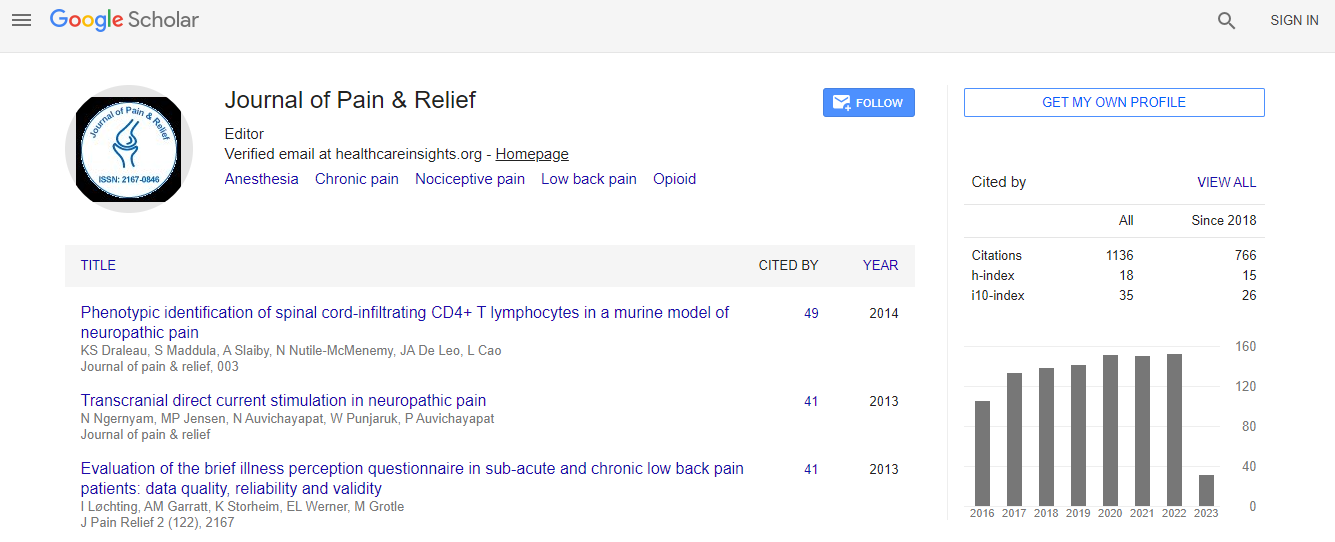Research Article
Auricular Point Acupressure (APA) to Manage a Symptom Cluster of Pain, Fatigue, and Disturbed Sleep in Breast Cancer Patients: A Pilot Study
| Chao Hsing Yeh1*, Lung-Chang Chien2, Ronald M. Glick3, Gijsberta van Londen4 and Dana Howard Bovbjerg5 | |
| 1Department of Health Promotion & Development, School of Nursing, University of Pittsburgh, USA | |
| 2Division of Biostatistics, School of Public Health at San Antonio Regional Campus, University of Texas, USA | |
| 3Departments of Psychiatry, Physical Medicine, and Rehabilitation, School of Medicine, University of Pittsburgh, USA | |
| 4Department of Medicine, Division of Hematology/Oncology, Department of Medicine, Division of Hematology/Oncology, University of Pittsburgh Medical Center, USA | |
| 5Biobehavioral Medicine in Oncology Program, Hillman Cancer Center, University of Pittsburgh Cancer Institute, USA | |
| Corresponding Author : | Chao Hsing Yeh Department of Health Promotion& Development University of Pittsburgh, School of Nursing 3500 Victoria Street, 440 Victoria Building Pittsburgh, PA 15261, USA Tel: 412 648 9259 Fax: 412 624 8521 E-mail: yehc@pitt.edu |
| Received August 04, 2015; Accepted September 14, 2015; Published September 16, 2015 | |
| Citation: Yeh CH, Chien LC, Glick RM, Londen Gv, Bovbjerg DH (2015) Auricular Point Acupressure (APA) to Manage a Symptom Cluster of Pain, Fatigue, and Disturbed Sleep in Breast Cancer Patients: A Pilot Study. J Pain Relief 4:199. doi:10.4172/21670846.1000199 | |
| Copyright: © 2015 Yeh CH, et al. This is an open-access article distributed under the terms of the Creative Commons Attribution License, which permits unrestricted use, distribution, and reproduction in any medium, provided the original author and source are credited. | |
| Related article at Pubmed, Scholar Google | |
Abstract
Purpose: To examine the feasibility of an auricular point acupressure (APA) to manage a symptom cluster of pain, fatigue, and sleep disturbance; to explore the potential utility of APA for reducing these symptoms in breast cancer patients.
Design/Research approach: This was an open-pilot trial, with repeated observational research design. Setting: Participants were recruited from cancer outpatient clinics in an urban setting. Sample: Breast cancer patients undergoing adjuvant treatment (n=31).
Methods: The APA treatment protocol was designed to manage a pre-selected symptom cluster of pain, fatigue, and sleep disturbance in breast cancer patients. Participants received one in-person APA treatment, and the participants were taught to press the seeds three times a day for 3 minutes each time for 7 days to allow them to continue the treatment on their own at home to manage symptoms. Main Research Variables: Symptom severity, analgesic use, and functional status.
Findings: The retention and adherence rate was 93%. After 7 days of APA treatment, pain, fatigue, sleep, and other symptoms decreased by a clinically significant amount (symptom severity decrease ≥ 30%). Analgesic use was a statistically significant predictor for the symptom cluster of pain, fatigue, and sleep disturbance. However, functional status and perceived efficacy of APA treatment had no statistically significant influence on the symptom cluster.
Conclusions: APA may provide an inexpensive and effective complementary approach for the management of specific symptom cluster of pain, fatigue, and sleep disturbance for breast cancer patients receiving cancer treatment; further study is warranted. Implication for Nursing: APA is a non-invasive method which can be used to self-manage cancer symptoms. Nurses without formal training in acupuncture easily can be trained to administer APA.

 Spanish
Spanish  Chinese
Chinese  Russian
Russian  German
German  French
French  Japanese
Japanese  Portuguese
Portuguese  Hindi
Hindi 
